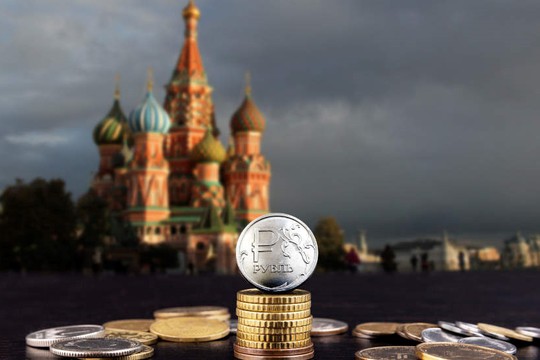If Russia, China and other diplomatic rivals were to decide that their dollar assets were vulnerable and that they could no longer trust the dollar as a means of exchange, we would feel the pain of that $34 trillion in debt in a way that we don’t now. Retaining the advantages of a reserve currency depends on our behaving as a trustworthy and neutral custodian of others’ assets. If we start stealing people’s money, that could change, writes ‘The New York Times’.
At the start of the war, Russia had about $600 billion in reserves. That means securities denominated in euros, dollars, British pounds, yen and various other stable, convertible currencies, along with gold. In normal times, Russia, like other countries, holds those currencies to facilitate trade and stabilize its own currency. Little of that money — a few billion dollars — is in the United States. Most talk of seizing Russian assets concerns the roughly $300 billion held in Europe, the bulk of it at a depository in Belgium called Euroclear.
Although Europeans regulate this money, they have mostly followed America’s lead on diplomatic and strategic matters since the start of the war. Individual European countries, above all Germany, have urged caution before laying hands on Russia’s reserves, fearing that such a move would jeopardize the euro’s status as a (lesser) reserve currency. The REPO Act could goad them to act more aggressively.
The European Union has proposed a compromise between leaving the money alone and seizing it all. It has asked Euroclear to hold in separate accounts the profits generated by its Russian assets. These profits could then be taxed at a high rate and the proceeds delivered to Ukraine — an accounting maneuver expected to yield about $3 billion a year.
Other Europeans have proposed a more reckless course. They argue that Russia’s hundreds of billions of dollars should be used as collateral for a large Western war loan to Ukraine, to be repaid out of anticipated reparations, for which the European Union could replace Ukraine as the claimant.
These debates come down to the difference between freezing assets and seizing them. For the past few months, Mr. Biden and his administration have called for seizing the Russian reserves outright and using them to fund the war against Russia — a move that would be, if not entirely unprecedented, at least radical. Freezing reserves happens.
If the REPO Act is enacted, then currency seizures, now seen as a tool of last resort, might turn into standard operating procedure, to America’s detriment. Any foreign government liable to having an American voting bloc riled up against it — China, for starters — would think twice before parking its assets in the United States or with one of its NATO allies.
That is not yet a probability, but it is a possibility that no politician of either party should lose sight of. For decades now, the United States has been deferring hard decisions at home and abroad and papering over partisan divisions with the tens of trillions of dollars that our advantageous international position has allowed us to borrow. Our options, though, are narrowing.
read more in our Telegram-channel https://t.me/The_International_Affairs

 12:11 15.04.2024 •
12:11 15.04.2024 •























